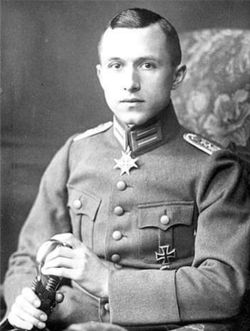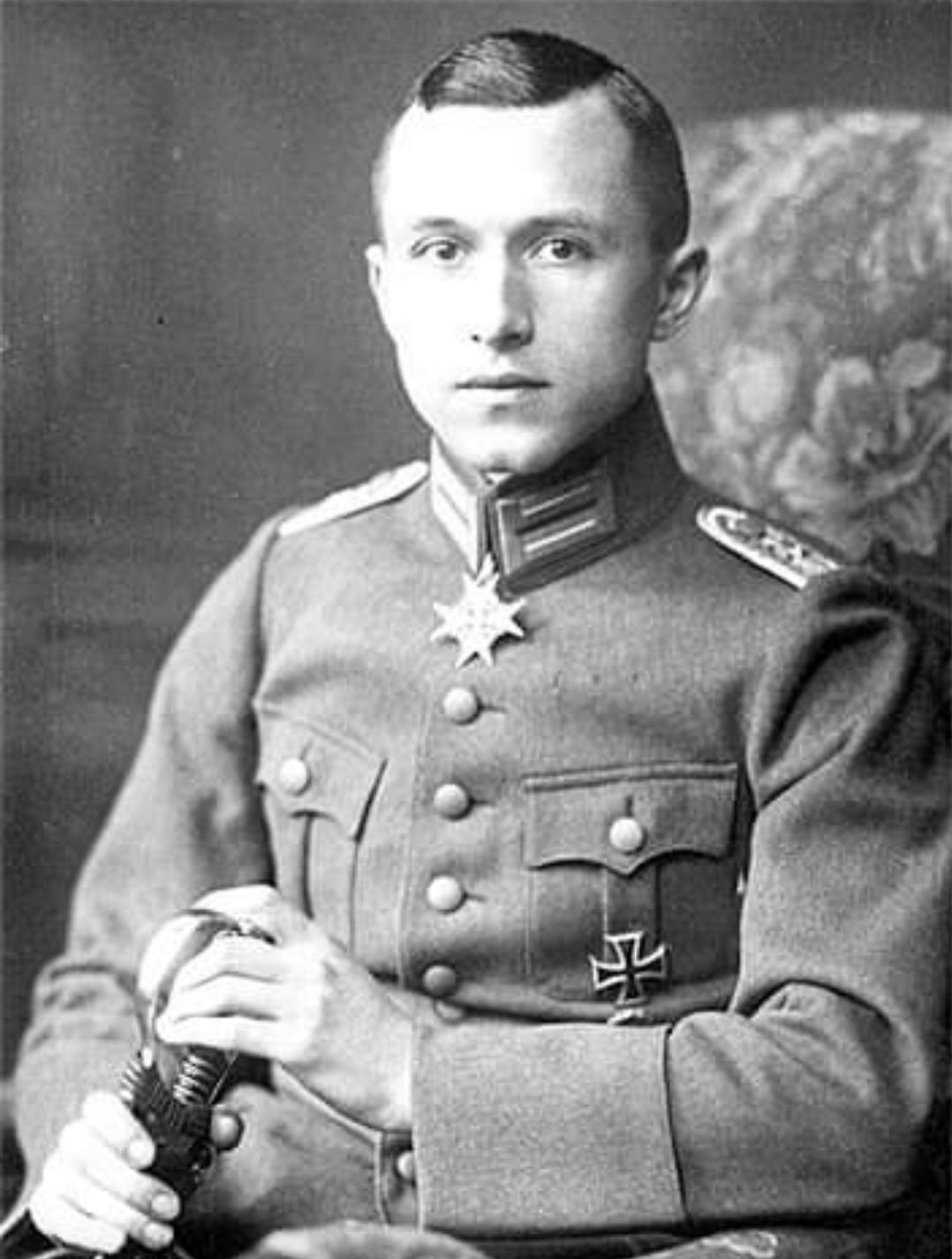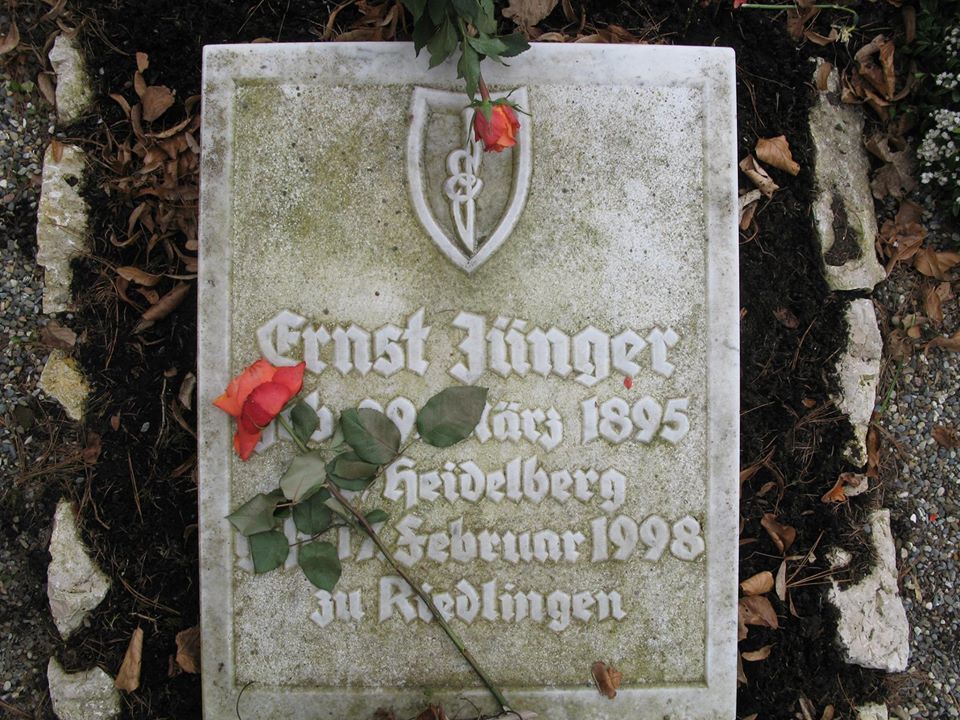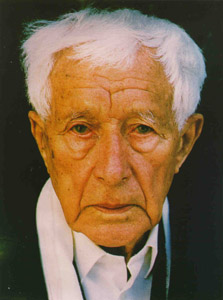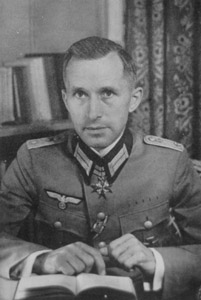Military Figure, Author. He was a prolific German novelist, poet, and essayist. He ran away from school to enlist in the French Foreign Legion but was brought home by his father and, in 1914, volunteered to join the German Army during World War I, earning decorations as an officer after being wounded at least seven times. Besides his 1916 Iron Cross, he received the Pour le Mérite medal, Germany's highest military decoration. He recorded his war experiences in several books, most famously in "Im Stahlgewittern (Storm of Steel)." Starting in 1923, Jünger studied zoology and botany at the Universities of Leipzig and Naples. While admired by the Nazis, he remained critical of them through novels such as the 1939 "On the Marble Cliffs." He served as an army captain in occupied Paris, but by 1943 was openly rejecting wider Nazi goals and was dismissed from the army in 1944 after being indirectly involved in a plot to assassinate Nazi leader Adolph Hitler. His most famous later books include "Heliopolis" in 1944 and "The Glass Bees" in 1957. His entire works were published in 18 volumes from 1978 to 1983. He married and had two sons, with one dying during World War II at age 18 in Italy. As a widower, he married for a second time in 1962. He died at age 102 after a full and active life almost to the end.
Military Figure, Author. He was a prolific German novelist, poet, and essayist. He ran away from school to enlist in the French Foreign Legion but was brought home by his father and, in 1914, volunteered to join the German Army during World War I, earning decorations as an officer after being wounded at least seven times. Besides his 1916 Iron Cross, he received the Pour le Mérite medal, Germany's highest military decoration. He recorded his war experiences in several books, most famously in "Im Stahlgewittern (Storm of Steel)." Starting in 1923, Jünger studied zoology and botany at the Universities of Leipzig and Naples. While admired by the Nazis, he remained critical of them through novels such as the 1939 "On the Marble Cliffs." He served as an army captain in occupied Paris, but by 1943 was openly rejecting wider Nazi goals and was dismissed from the army in 1944 after being indirectly involved in a plot to assassinate Nazi leader Adolph Hitler. His most famous later books include "Heliopolis" in 1944 and "The Glass Bees" in 1957. His entire works were published in 18 volumes from 1978 to 1983. He married and had two sons, with one dying during World War II at age 18 in Italy. As a widower, he married for a second time in 1962. He died at age 102 after a full and active life almost to the end.
Bio by: Linda Davis
Advertisement
